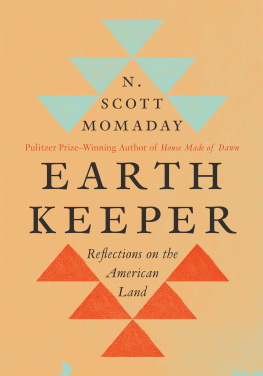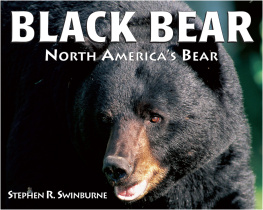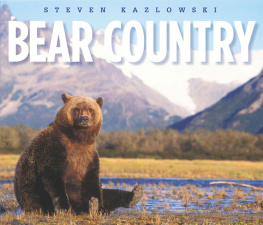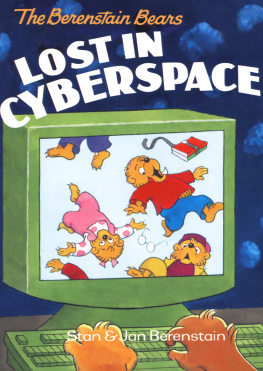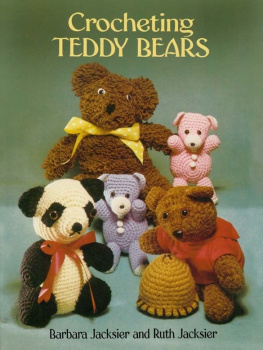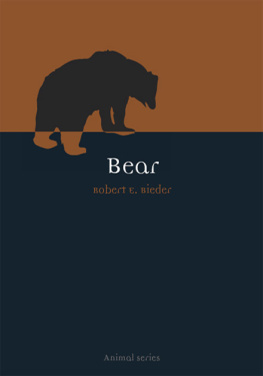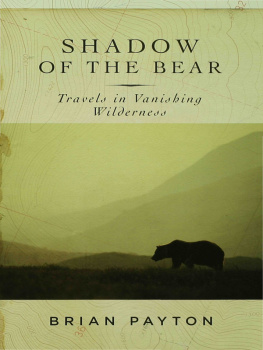In the Bears House
In the Bears House

N. SCOTT MOMADAY

ISBN for this digital edition: 978-0-8263-4841-8
2010 by N. Scott Momaday
All rights reserved. Published 2010
Printed in the United States of America
14 13 12 11 10 1 2 3 4 5
The Library of Congress has cataloged the printed edition as follows:
Momaday, N. Scott, 1934
In the bears house / N. Scott Momaday.
p. cm.
Originally published: New York : St. Martins Press, 1999.
ISBN 978-0-8263-4839-5 (cloth : alk. paper)
1. BearsLiterary collections. I. Title.
PS3563.O47I46 2010
818.5409dc22
2010019954
For Luke, Natachee, and Tai
Contents
ACKNOWLEDGMENTS
For inspiration, for good advice, for their love and caring, I wish to thank the following: Barbara Glenn, Bernard Pomerance, Meir Ribalow, Doug Peacock, Bob Weil, and my daughters, Cael, Jill, Brit, and Lore.
For his old nobility, his swerving loyalty, and his pursuit, with meticulous abandon, of life, I give thanks to Urset the Original.

INTRODUCTION
Let me say at the outset that this is not a book about Bear (he would be spoken of in the singular and masculine, capitalized and without an article), or it is only incidentally about him. I am less interested in defining the being of Bear than in trying to understand something about the spirit of wilderness, of which Bear is a very particular expression. Even Urset, who is the original bear and comes directly from the hand of God, is symbolic and transparent, more transparent than real, if you will. He is an imitation of himself, a mask. If you look at him very closely and long enough, you will see the mountains on the other side. Bear is a template of the wilderness.
I am acquainted with Bear, indeed more than acquainted. Bear and I are one, in one and the same story. My Indian name is Tsoaitalee, which in Kiowa means Rock-tree boy. Tsoai, Rock tree, is Devils Tower in Wyoming. That is where, long ago, a Kiowa boy turned into a bear and where his sisters were borne into the sky and became the stars of the Big Dipper. Through the power of stories and names, I am the reincarnation of that boy. From the time the name Tsoai-talee was conferred on me as an infant, I have been possessed of Bears spirit. The Kiowaswhose principal religious expression was the Sun Dance and whose most ancient blood memory was of the mythic darkness of a hollow log from which they emerged into the worldbelieve that the buffalo is the animal representation of the sun. Bear is the animal representation of the wilderness.
There are people in the world who would not wish to be in the world, were not Bear there as well. These are people who understand that there is no wilderness without him. Bear is the keeper and manifestation of wilderness. As it recedes, he recedes. As its edges are trampled and burned, so is the sacred matter of his heart diminished.
Bear, in these poems and dialogues, is of comprehensive mind and manner. He is wary, yet curious; old, yet playful; crotchety, yet serene; humble, yet wise. And like those originals whose presence we seem to require whenever it is given us, Bear is an impractical visionary. His eyesight is weak, but he sees beyond the edge of the world, beyond time; he watches with profound loneliness the arcing progress of his kinsmen in the night sky, curving to the solstices.
And one October I made a quest after Bear, in myself and in the wide night of the wilderness. For four days I camped on the east side of Tsoai and fasted. On the fourth night I felt strangely refreshed and expectant. The pangs of hunger that I had suffered through the day were gone. I felt a restoration of my body and spirit in the cold air. There was a perfect stillness around me. The great monolith, Tsoai, rose above me in phosphorescent haze, drawn like a tide by the moon. It bore a kind of aura for a time, and then, as the night darkened to black, its definition grew sharp. Ursa Major emerged on the south side of its summit, as if the two things were in the same range of time and space. Then the constellation rode over Tsoai, descending across its northern edge. It must have taken a long time, but it seemed a moment. And besides, I too was looking beyond time, into the timeless universe. Shadows deepened on the monolith, and in one of them appeared Bear, rearing in some fluent alignment with Tsoai itself, huge, indistinct, and imperturbable. I was fulfilled in some sense, neither frightened nor surprised. It was, after all, the vision of my quest, and it was mine, and it was appropriate. I came away more nearly complete in my life than I had ever been.
Some years later I ventured among a people for whom Bear is sacred. In western Siberia I was shown articles of the Khanty bear feastthe facial skin of a bear, like a mask from another world, the bears paws, the sledge upon which the bear was borne to its shum, its house. In the presence of these things I felt their power. In their presence I understood something about Bears transcendent spirit, how it is that Bear dances on the edge of life and death, crossing over and back again.
When the hunter has killed a bear, he tends carefully to its body. He anoints it; he removes its coat and replaces it. On a sledge he moves the bears body to the edge of the village. There the people come to greet and welcome it. The bear is placed in its shum, its own house, where it can survey all the elements of the feast and preside over them. The hunter stands away, and the singer approaches. Where are you going? asks the singer. The hunter replies, I am going to the bears house. Why, that is where I am going, too, says the singer. The singer begins his hundred songs, and there is wrestling and dancing and feasting far into the night.
Something in me hungers for wild mountains and rivers and plains. I love to be on Bears ground, to listen for that old guttural music under his breath, to know only that he is near. And Bear is welcome in my dreams, for in that cave of sleep I am at home to Bear.
N. Scott Momaday
1998
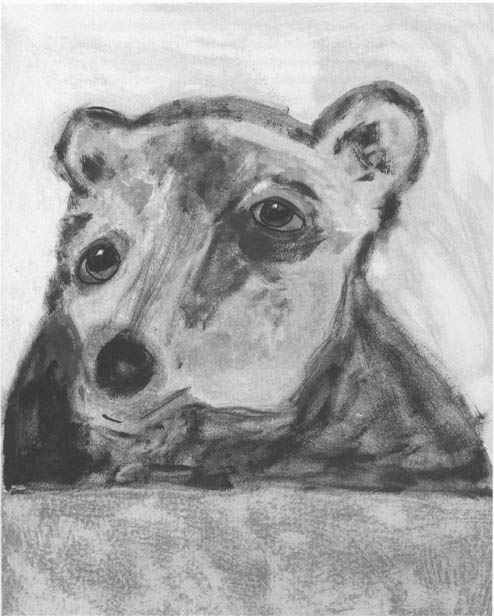
THE BEAR-GOD DIALOGUES

YOU ARE, URSET. I AM, YAHWEH
Undefined space. Two chairs under a light, perhaps a street lamp or a Chinese lantern in a tree. YAHWEH, the Creator, is slouched in one of the chairs, dozing. Enter URSET, the bear, very softly, warily. He stands for a moment beside the empty chair, tentative, ill at ease. He sits.
URSET
Ah, ahem. Pardon, Great Mystery. Beg pardon.
(YAHWEH stirs, stretches, looks up.)
It is only I, Urset.
YAHWEH
Yes? What? Oh, yes, it is you, Urset. How are you?
URSET
Do you know me, then?
YAHWEH
Know you? How could I not know you, Urset. I created you.
URSET
Yes, yes, I have dreamed of that. I have dreamed that I came very small from your hands.
YAHWEH
So small. You were scarcely larger than a rat. I thought, when I saw you in your new corporeal being, that I had made some mistake, for I meant you to be formidable, and there you were, a wet rat. And yes, you did indeed come from these hands. These very fingers, these palms, the heels of these hands. I made a little ball of fur, wet furfrom something floating on the waters, as I recalla knot of hair, a bit of drift. It was you! And, behold, you became formidable. I dont mind telling you, Urset, you are one of my showpieces. I am proud of you.
Next page

